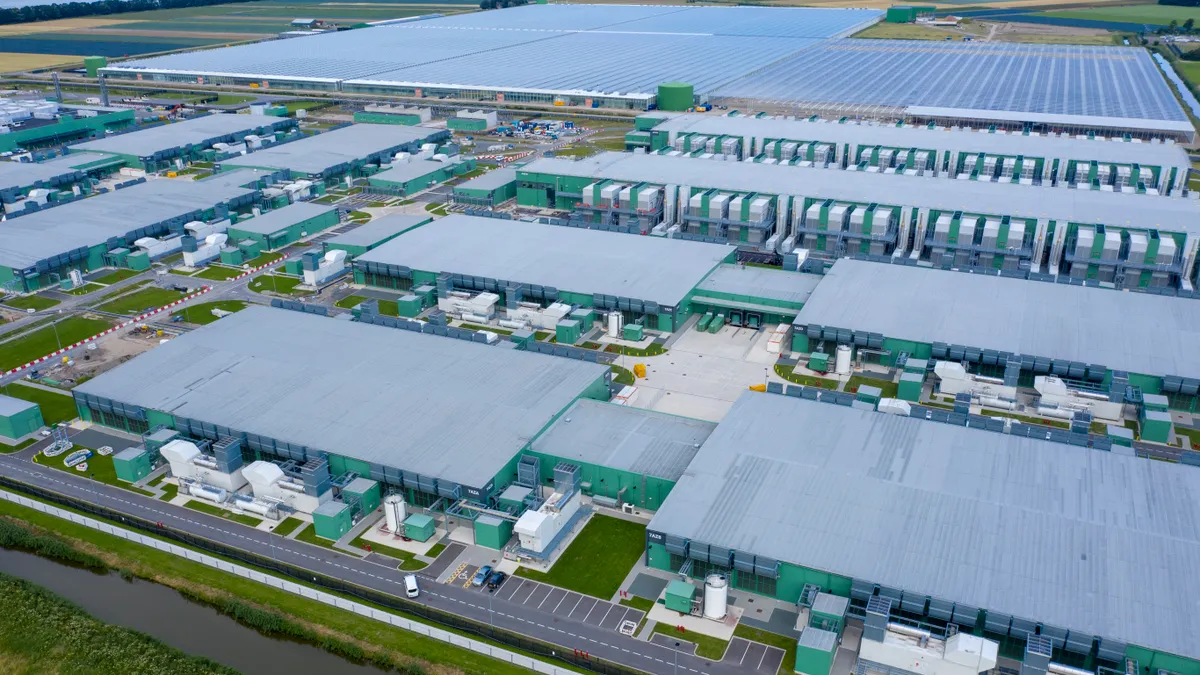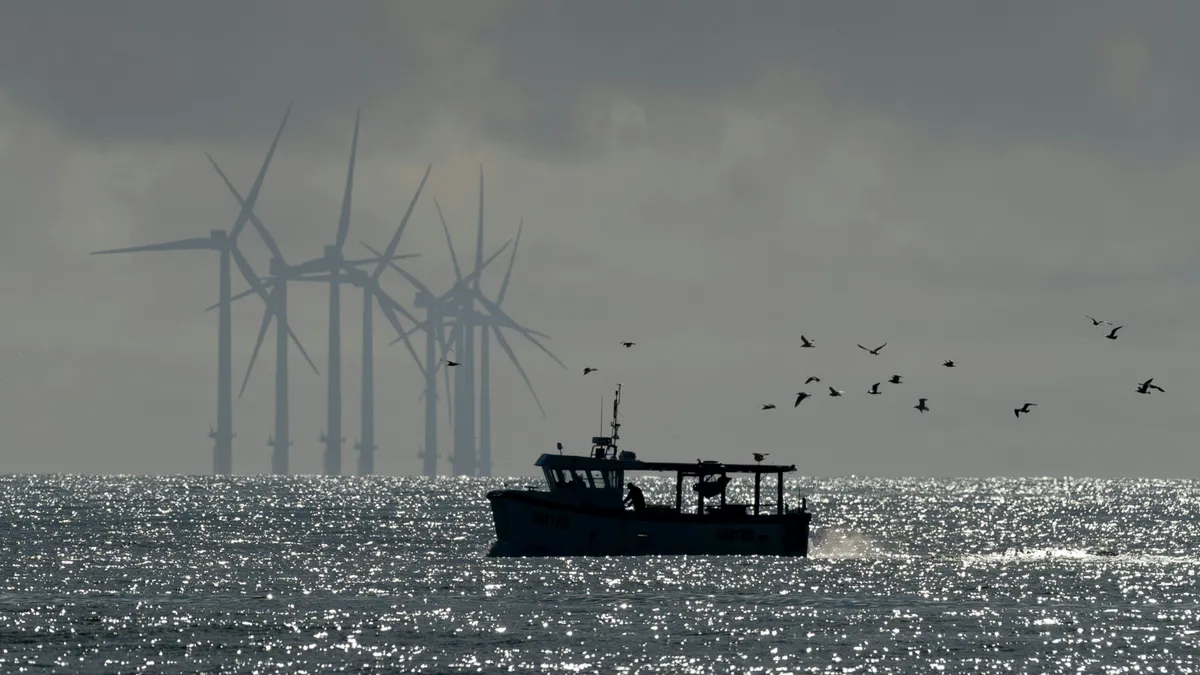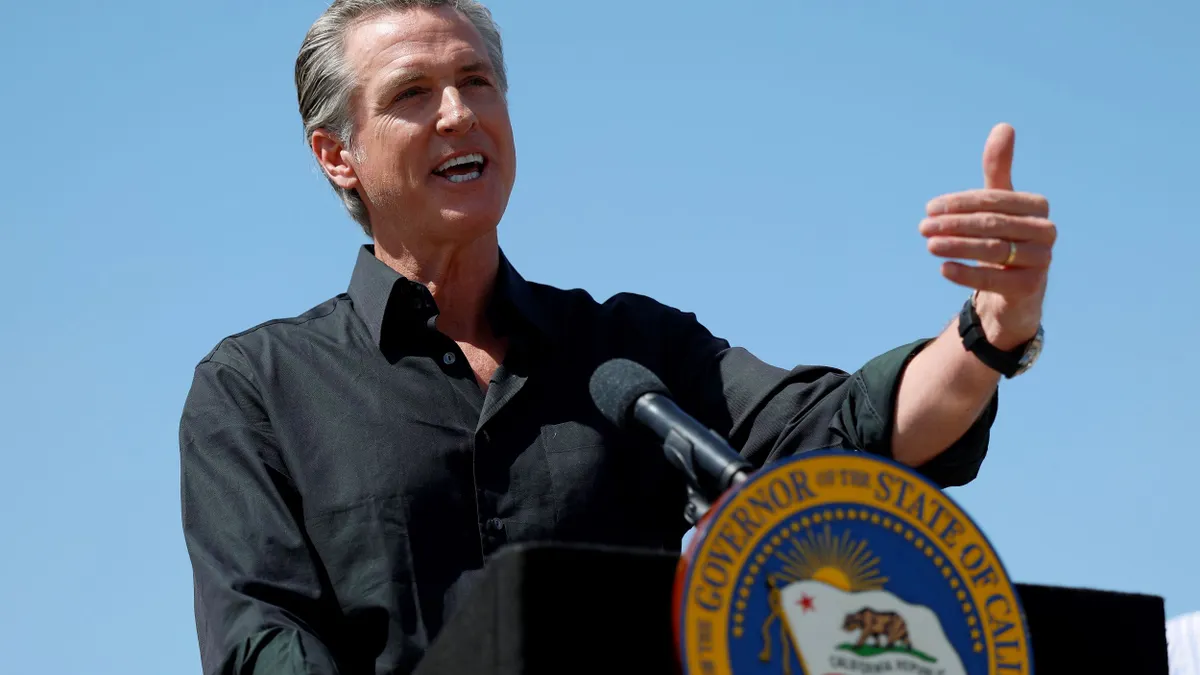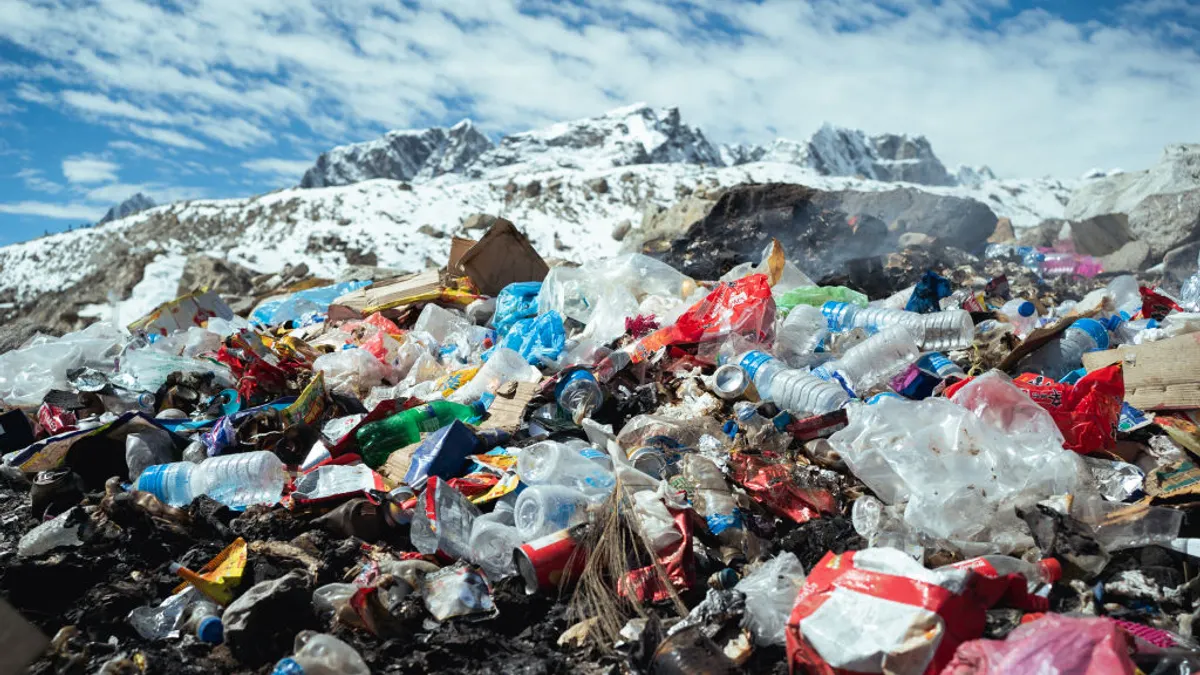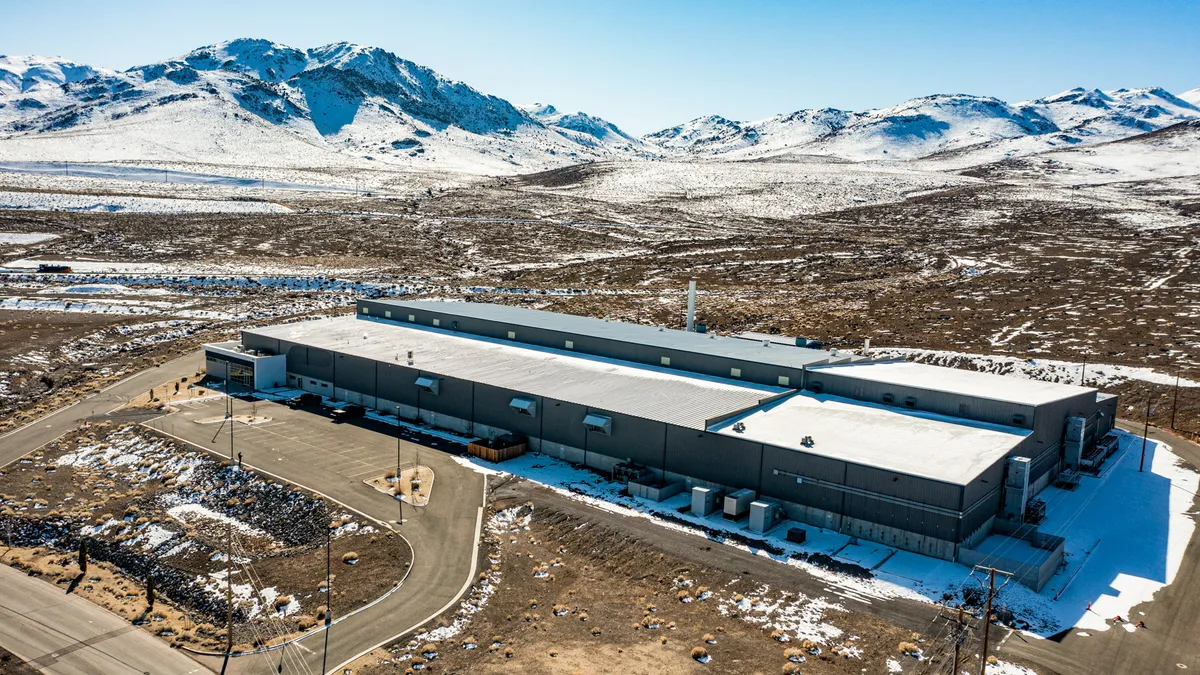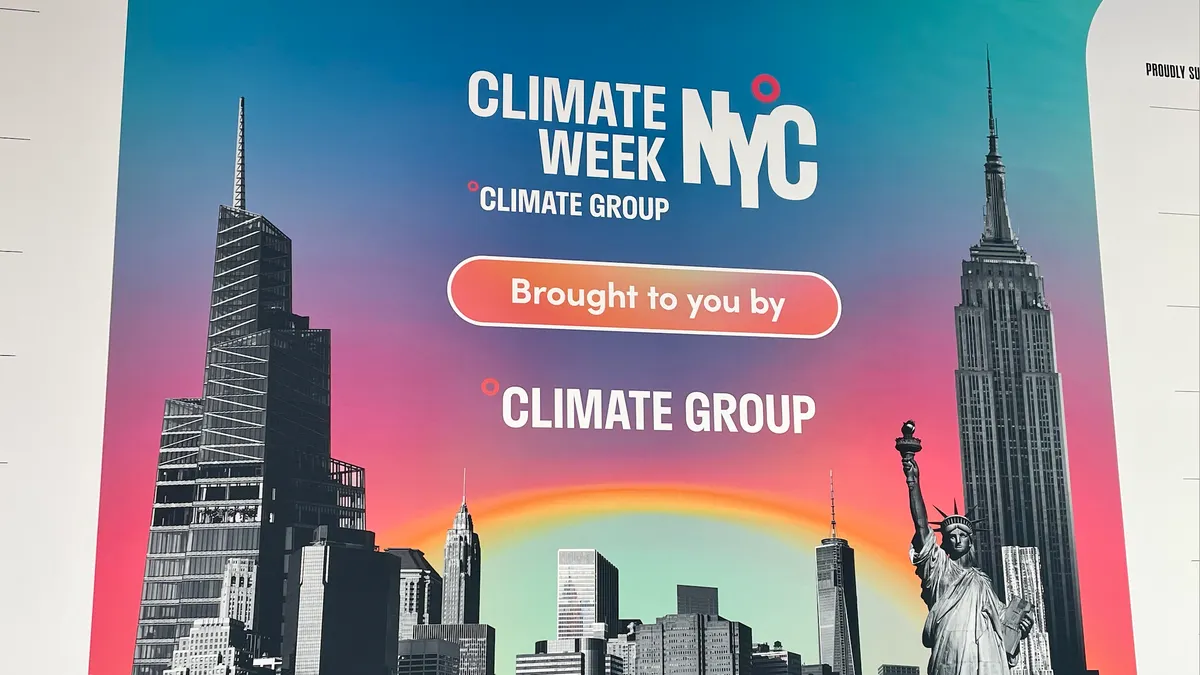While President Joe Biden’s administration looked to leave a climate legacy through ESG and climate-friendly legislation and regulations, President-elect Donald Trump will look to reverse course on the issues and aim to walk back his predecessor’s work.
The upcoming change in political direction has already led to a mass exodus from climate alliances by some of the nation’s largest banks, and companies have been stepping back from DEI commitments since last summer. However, regulations elsewhere and the soaring need for energy to placate artificial intelligence’s data center demand will also require companies to maintain their focus on assessing and reporting ESG issues this year.
Here are some of the ESG, climate and sustainability trends that will require monitoring in 2025.
Climate alliances no longer desirable memberships for Wall Street
The past year was marked with notable exits from climate alliances and net-zero groups, and 2025 has proven to be no different so far.
Bank of America and Citigroup announced they were leaving the United Nations-backed Net-Zero Banking Alliance on New Year’s Eve, followed shortly by Morgan Stanley and JPMorgan Chase on Jan. 2 and Jan. 7, respectively. The slew of departures came less than a month after Goldman Sachs and Wells Fargo ended their memberships in the group.
The NZBA membership defections came weeks before President-elect Donald Trump is set to return for his second stint in the White House, with a Republican majority in both the House and Senate in tow. The exits are also set against a backdrop of climate-focused alliances facing increased scrutiny from the Republican party, which has initiated probes on ESG policies across multiple fronts.
The NZBA — whose members have committed to align their lending, investment and capital markets activities with global efforts to tackle climate change — has been the target of several GOP-led probes and investigations of late.
Separate probes initiated by 14 Republican state attorneys general and 12 Republican heads of agriculture targeted Goldman Sachs, Bank of America, Citigroup, JPMorgan Chase, Morgan Stanley and Wells Fargo and inquired about their participation in the NZBA. As of now, all six of the U.S.-headquartered banks have departed the climate alliance. Only three U.S.-based banks remain in the NZBA — Amalgamated Bank, Climate First Bank and Areti Bank — according to the group’s membership list.
“If Wall Street banks acquiesce further to climate denier politicians and fail to follow through on their climate commitments, it will isolate the U.S. on the global stage, and the enormous costs will fall upon our global economy, financial markets, and vulnerable communities,” Ben Cushing, the director of the environmental nonprofit Fossil-Free Finance campaign, said following JPMorgan’s exit on Tuesday.
The Net-Zero Banking Alliance isn’t the only climate group that has been affected by GOP probes and, consequentially, a dwindling membership count. Last year also proved to be rocky for investor group Climate Action 100+. Several big names left the group as House Republicans continued an inquiry into members’ use of environmental, social and governance factors in investment decisions.
JPMorgan Asset Management, State Street Global Advisors, Invesco, Pacific Investment Management Company, Goldman Sachs’ asset management arm and subsidiaries of Franklin Templeton and Sun Life Financial all left CA100+ in 2024 alone, while BlackRock downgraded its membership to a smaller international arm.
A recent report from the House Judiciary Committee found that over 70 investors have left CA100+ in the years since Republicans on the committee have investigated the group. The December 2024 report attributed the departures to reasons that include “obligations under antitrust and competition laws.”
Environmental advocates have expressed concern over this pattern of withdrawals from notable Wall Street banks in the wake of the upcoming change in government.
“With these exits from NZBA, right-wing politicization is making lawful problem-solving harder, just when it is needed more than ever, but it cannot stop banks’ engagement with reality,” Frances Sawyer, founder of climate and research firm Pleiades Strategy, told ESG Dive in emailed comments.
Sawyer added that “climate risk is financial risk” and that the financial sector, including banks, needs to be “clear-eyed in risk assessments and engaged with cross-sector problem solving to mitigate climate risks and engage with the energy transition to protect depositors and their bottom line.”
With financial institutions scurrying to depart these climate groups ahead of Trump’s inauguration on Jan. 20, experts worry about what this might bode for voluntary climate alliances and corporate net-zero goals in 2025.
U.S. federal climate and ESG deregulation won’t stop mandatory reporting
Trump’s presidency will pivot the federal stance on ESG and climate-focused regulations, with a number of regulations likely to be axed or no longer supported in court. However, the broader legal landscape will still require a large swath of U.S. companies to begin preparing climate-related data for disclosures to various U.S. and international regulators.
Trump’s nominations of Paul Atkins to Chair the SEC and Chris Wright to lead the Department of Energy have drawn alarm from ESG, climate and public advocacy groups.
Two ESG-related regulations facing the most risk of being undone under Trump — the SEC’s climate rule and the DOL’s rule allowing fiduciaries to consider ESG factors — are both currently facing litigation from public oilfield services company Liberty Energy, where Wright serves as CEO. Atkins also said in a comment letter to the agency in June 2022 that he did not believe the agency had the authority to require climate disclosures.
The final disclosure rule, approved in March, dropped scope 3 emissions reporting and instead required a smaller group of companies to report scope 1 and scope 2 emissions in addition to other material climate-related risks. The rule was stayed in April after facing legal challenges.
Michael Littenberg — who leads law firm Ropes & Gray’s compliance practice ESG, corporate social responsibility and business and human rights issues — wrote in a post that he expects the rule to not be revived.
“There are different paths that may result in the demise of these rules, but companies will not be required to comply with them,” Littenberg wrote.
However, he said, ultimately “ESG is not going away” and regulations are “largely here to stay.” He expects California’s climate disclosure rules will survive legal challenges, and other states will follow suit. A similar package of bills was introduced in New York’s state legislature last legislative session and again this year.
Outside of the nation’s borders, the European Union adopted a reporting delay for non-EU entities and certain sectors to comply with the Corporate Sustainability Reporting Directive last year, but such companies will need to report to the body beginning in 2026. 3,000 U.S. companies will be required to comply, according to a Deloitte estimate.
Additionally, jurisdictions representing at least 55% of the global gross domestic product are aligning or incorporating the International Sustainability Standards Boards’ standards into their legal or regulatory reporting frameworks.
Tracey Lewis, a senior policy counsel for the climate program at nonprofit Public Citizen, said last month on a press call organized by pro-ESG 501(c)4 Unlocking America’s Future that “the projected rollback by Atkins and other parts of the incoming administration … ultimately will fail.”
“They can strip out [the climate-disclosure rule], roll it back, put it on the Atkins diet, but darn near every other major nation around the globe is implementing some version of climate disclosure,” Lewis said.
Corporations continue to steer away from DEI
2024 saw an onslaught of corporations walking back policies focused on diversity, equity and inclusion, and 2025 seems to be following suit.
McDonald’s embraced the new year by axing a few initiatives centered on DEI, including diversity goals for senior leadership; its supply chain’s commitment to DEI and external surveys that evaluated the work the company did internally. The fast-food giant is the latest to join a string of corporations that have diluted or rolled back their DEI programs as of late.
These walkbacks come in the wake of heightened scrutiny of such policies from Republicans after the Supreme Court struck down affirmative action in college admissions in 2023, impacting race-conscious admission decisions across the country.
Last year, multiple large U.S. companies backed away from their DEI goals, roles and initiatives. Tractor Supply eliminated its DEI roles and ended support for Pride events and voting efforts, Microsoft later cut two diversity-related roles and Harley Davidson announced its own DEI pullback. The maker of Jack Daniel’s followed suit by eliminating several DEI programs in response to a shifting “legal and external landscape,” as described to ESG Dive’s sister publication, HR Dive. Subsequently, Ford, Molson Coors, Lowe’s and Walmart also unveiled shifts to their DEI strategies.
Many corporations are leaning toward shedding their DEI commitments in the wake of growing political pressure and anxiety over how the upcoming administration views such initiatives. This is despite recent research from McKinsey & Company and the Human Rights Campaign Foundation that found corporate environments where the workforce is representative of the nation’s gender and racial diversity are more likely to outperform their competitors, improve business revenue, boost employee productivity, increase retention, bolster workplace morale and encourage innovation.
“In 2024, we saw a sharp rise in legal challenges against DEI and ESG initiatives driven by the far right to advance anti-woke policies … as we look to 2025 under the Trump administration, we should expect even more scrutiny and legal actions against DEI and ESG initiatives,” Scott M. Curran, CEO of social impact consulting firm Beyond Advisers, said in emailed comments to ESG Dive.
AI’s soaring demand could continue to drive appetite for clean energy
The increased uptake of artificial intelligence and generative AI has come with an increased energy demand. An estimate from research by Rhodium Group found that electricity demand is expected to increase 24-29% over 2023 levels by 2035.
While half of that overall growth is expected to come from the growth of transportation electrification, Rhodium said 22% of the increased demand will come from data centers.
While the incoming Trump administration has touted an intention to increase fossil fuel production, the economics of clean energy have shifted since Trump was last in office, according to CleanCapital CEO Jon Powers.
“I think people [in the clean energy industry] will be monitoring the policy changes that are coming out. But the reality is the demand for what we produce has actually grown,” Powers said in an interview. “The need for renewable energy to power data centers, for the big tech companies that are all committed to doing low-carbon power. That's not going away because of the Trump administration.”
The clean energy industry will also need to educate the incoming administration on the value of allowing the acceleration of the clean energy industry to continue unimpeded, Powers said. On the other side of the equation, the tech industry is actively investing in clean power to offset growth in data center power needs from AI’s growth.
Tech giants Microsoft and Meta are both looking to nuclear power, in part, to offset the increased data center strain with zero emissions and clean energy.
Energy company Constellation announced in September that Pennsylvania nuclear power station Three Mile Island would reopen in 2028 after Microsoft inked an 835 megawatt power purchase agreement to match its data center use on the regional transmission over 20 years. In December, Meta released a request for proposals from nuclear power companies and is looking to purchase up to 4 GW of new nuclear energy to meet its AI and sustainability goals.
Cisco Chief Sustainability Officer Mary Wysocki told ESG Dive she expects to continue to see an emphasis in the industry on technology to digitize, modernize and clean the grids to accommodate AI’s demand.
The increase in green investments and tech will continue, just slower
While an adversarial federal stance on ESG and climate change is expected to slow the pace of the clean energy transition over the next four years, experts believe the private sector will continue to accelerate its work on the transition under Donald Trump.
At least 1,750 global companies have net-zero targets, according to the nonprofit Net Zero Tracker’s 2024 stocktake. Cisco’s Wysocki said in an interview that customers are increasingly requiring proof of the commitments from companies and meeting them will require an increased focus on circularity and other topics of sustainability.
“I think a lot of people think [about] carbon [emissions in sustainability], but how do we quickly get people to think of circularity, water and biodiversity,” Wysocki said.
Companies will continue to invest in clean energy and other clean technology industries that Powers said were catalyzed by the investments included in the Inflation Reduction Act and Bipartisan Infrastructure Law. In another report, Rhodium found that clean energy investments hit a record high of $71 billion in investment in the third quarter of 2024.
However, the slowed growth and deregulation come with heightened climate risks, Sustainable Investments Institute Executive Director Heidi Welsh previously told ESG Dive.
Estimates from Rhodium and BloombergNEF have the U.S. on pace to cut 30% and 22% of its emissions by 2030, well below its Paris agreement target of slashing half of its emissions by decade’s end. An Accenture report found that just 16% of global companies are on track for net-zero, and some like Walmart and Coca-Cola have already acknowledged they won’t hit 2025 targets.





